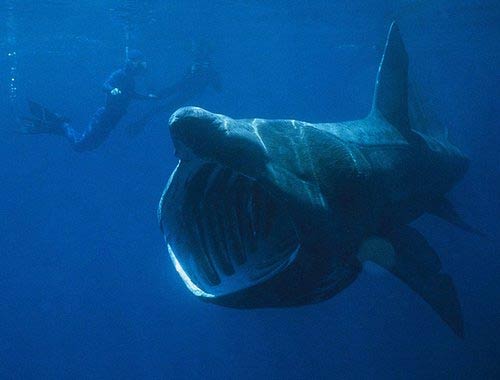Did you know that you are more likely to be killed by a vending machine than by a shark?1 Most people think of sharks as vicious predators that pose a threat to beachgoers, but the reality is that humans pose a far bigger danger to sharks than they do to us. Our depiction of sharks as demonic creatures is hindering our ability to see that sharks are both worthy and in desperate need of our help to save them.
Shark Populations in Decline
Shark populations around the world are on the decline, with one third of open-ocean sharks endangered ,1 and some shark species’ populations shrinking by more than 90%.3 For example, shark populations in the Mediterranean Sea have fallen by 97% over the last 2 centuries.4 The Shark Attack Files estimate that humans kill 79 million sharks each year, while sharks killed only 51 humans in the ten years between 1999 and 2009.5 Even more shocking is the recent finding that 11,417 sharks are killed per hour!6
 7
7
There are a variety of reasons for the shark declines, including:
- Hunting: Sharks are commonly fished or hunted for sport. Unfortunately, many tourists often take a photograph of their trophy catch but then leave it to rot on the beach. In response, many shark conservationists are lobbying for marinas and resorts to ban the offloading of shark carcasses to encourage catch and release rather than killing. So far, resorts and marinas in six different countries have banned dead shark landings. 8
- Bycatch: In order to catch fish like tuna and swordfish, commercial fishermen now use methods such as trawling and setting up longline hooks. Such methods often catch sharks in addition to the targeted fish. And because sharks often migrate and swim in large groups, bycatch can seriously deplete shark populations.9
- Habitat Loss: Trawling not only catches sharks accidentally, it also destroys ocean habitats like sea floors and coral reefs. This habitat loss can negatively impact certain species of sharks, especially if they are bottom feeders.10
- Shark Finning: Shark fin soup is considered a delicacy in Asia, Australia, and Hawaii. The dish is often served at important business meals, weddings, and other special occasions. Unfortunately, as the name implies, shark fin soup is made only from shark fins. There are currently about 100 shark species that are hunted specifically for their fins.11 As shark fin soup becomes known as a symbol of status, demand for the item continues to rise. In China, shark fin purchases have increased about 5% every year. Globally, the number of sharks caught and killed has “more than tripled in the last 50 years even though sharks are becoming harder to catch as their numbers fall.”12 Some sources estimate that as many as 5,000 sharks have their fins sliced off every hour. The fins are taken to market for as much as $800 per pound, while the bodies are thrown back into the ocean—as apex predators, sharks accumulate many toxins, so shark meat is apparently not worth the weight it adds to the boat.13

“In 2011 more than 22.7 million pounds of shark fins were exported from 83 countries to Hong Kong, the world’s biggest shark fin market. Many of the fins pictured here come from pelagic shark species, such as the porbeagle.”14
Why Are Sharks Important?
Sharks are known as the predators of the sea. As such, they fill an important role in the oceanic food chain—they keep other populations in check. For example, sharks have been overfished on the eastern coast of the United States. This has led to a rise in skate, ray, and small sharks where shark populations have declined. If there are too many bottom feeding rays, the seagrass beds and shellfish that inhabit them may become threatened.15
In addition, many island nations are discovering that sharks have major economic value. In fact, one study estimates the value of one shark may be as much as two million dollars. For example:
In Fiji, shark-diving tourism is worth $42m per year, and in French Polynesia, lemon shark-diving brings in $15.4m. In Palau, where diving tourism yields 39 percent of the country’s GDP, killing a shark can result in upwards of $250,000 in fines and an additional $250,000 for each section removed, such as the fins.16
Shark Conservation

In an effort to protect shark populations from further decline, many coastal communities such as the Bahamas, Honduras, Palau, Maldives and Ecuador are establishing shark sanctuaries.17 In China, a major shark conservation education campaign has been building, with basketball superstar Yao Ming as the frontman.18 Most recently, the Convention on International Trade in Endangered Species of Wild Flora and Fauna (CITES) just voted to protect five shark species including three species of hammerhead sharks, which are among the most coveted for shark fin soup.19 This recent ban on trading five sharks adds international teeth to earlier laws against live finning that have been passed in the U.S. and approximately 40 other countries.20;21
Sharks are some of the most amazing looking creatures in the ocean. Let’s do our part to avoid shark fin soup and call attention to the plight of sharks around the world. After all, can you imagine a childhood without Shark Week?22





